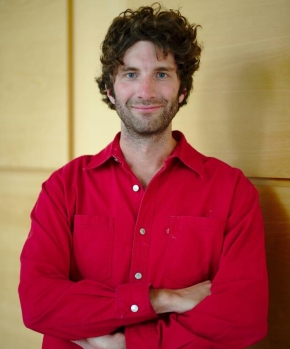Meet the Young CAS PI: Sigbjørn Løland Bore

Bore's project aims to enhance the accuracy of computational models used to study ice, by developing new empirical corrections to first principle calculations.
'From a cold glass of water on a sunny day to the unhabitable Antarctica, ice is a constant companion for us humans on Earth. Of all the fresh water available, ice makes up 69 % and covers 10 % of the Earth's surface. On the one hand, ice is fundamental for humans, keeping water levels manageable for current human habitation, reflecting sunlight to slow down global warming, preserving food, or facilitating leisure activities, such as skiing in Nordmarka during winter. But, on the other hand, ice can pose an existential threat, for example, making you miss out on Christmas dinner due to long queues while waiting for the deicing of the airplane', Bore writes in his project proposal.

Although first principle calculations are commonly used to model ice, they do not accurately predict the temperatures and pressures at which ice melts. To bridge this gap, Bore will develop new empirical corrections that will improve the reliability of computational microscopy for ice under conditions that are difficult to replicate in experiments. This will lead to a better understanding of the behaviour of ice, which is important given its significance in polar regions, as well as its impact on global climate and sea levels.
Bore's project is one of two Young CAS projects scheduled to start in August 2023. We spoke with him about his project and his thoughts about having been selected for the Young CAS programme!
Congratulations! Could you briefly tell us about your project?
'Thank you, it is a tremendous honour to have been chosen. Yes, the title of my project is “Can ice be described from first principles?”. As a computational chemist, I conduct chemical experiments by simulations on the computer instead of in a laboratory. In particular, I am very interested in understanding when the ice melts upon changes in temperature and pressure using such techniques. The ice you have in the fridge, called hexagonal ice, is actually just the tip of the iceberg, with 20 so far experimentally confirmed ice phases. In principle, we can understand this stability from the first principles by solving the famous Schrodinger equation by computer simulations (same Schrodinger who also has a cat). In practice, approximation leads to simulations failing at predicting when the ice melts, often by as much as 30 Celsius or even worse. My project gathers experts on ice and first-principles calculations to find a solution to this problem.'
Please tell us a bit about yourself, your research interests and your career path.
'I am 32 years old and from the city of Stavanger. I have a master's in applied physics from NTNU in Trondheim, and a master's in Physics of Complex Systems at Universite Pierre et Marie Curie in Paris, now called Sorbonne. After physics, I luckily stumbled into the Department of Chemistry at the University of Oslo to the Centre for Theoretical and Computational Chemistry (CTCC), which was followed by a new centre of excellence called Hylleraas for a Ph.D. in theoretical chemistry. There I started getting into computational chemistry under the supervision of Prof. Michele Cascella, focusing on approximate methods capable of simulating the motion of large systems of atoms, typically millions. After that, I did two years of Postdoc University of California, San Diego, under the supervision of Prof. Paesani, who is famous for his attention to accuracy in the modelling of water. Here, my research shifted away from very large biological systems to working simply on water, modelling only a few hundred molecules at the time. It turns out that small systems can be just as interesting and, for me, really satisfying as one can apply more accurate methods that really get to the bottom of how nature, or in my case, how water, behaves. I am now back at the Hylleraas centre postdoctoral associate.
My current research focuses on applying machine-learning-based methods. Essentially, the goal is to reduce the time a computer experiment by instead of solving the Schrodinger equation numerically, taking minutes, predicting the solution by machine learning model in milliseconds. This is important, as it allows us to do computer experiments on days that would otherwise take years. However, for such machine learning models to accurately model ice, the machine learning models need to be trained on very accurate energies from first principle calculations. Therefore succeeding with the research of Young CAS, will provide me with a powerful tool for my current research.'
Why did you apply to the Young CAS programme?
'It was during this postdoc that I came to understand the limitations in current modelling from first principles, which can capture an incredible amount of chemistry, but really struggle to predict ice melts. It was this realization and the thought that there must be some way of fixing this problem just for water that made me apply for the Young CAS programme. I thought that this fellowship was perfect for this problem, as it would allow gathering a group of young scientists, all under forty, with fresh ideas and the overconfidence needed to crack this long-standing problem.'
What in particular are you looking forward to as a future Young CAS PI?
'What I am most looking forward to is having the opportunity of focusing together with an excellent group of young scientists, whom I would not have the opportunity of working with Young CAS, on a problem with a really specific goal. Then, I am also really looking forward to spending time on the beautiful premises of the National Academy, where I have previously enviously watched other CAS and Young CAS receivers from the Hylleraas centre having the time of their life.'